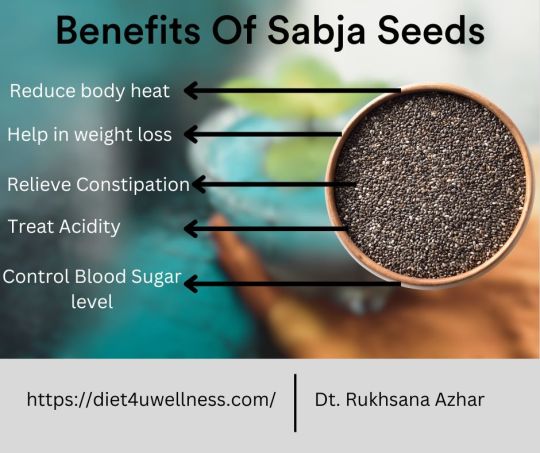
Discover the Amazing Benefits of Sabja Seeds
Table of Contents
- 1 Discover the Amazing Benefits of Sabja Seeds
- 1.1 Exploring the Origins and Health Benefits of Sabja Seeds?
- 1.1.1 Nutritional Facts and Health Benefits of Sabja Seeds
- 1.1.2 Fiber-Rich Goodness: Unlocking the Benefits of Sabja Seeds
- 1.1.3 Unlocking the Benefits of Sabja Seeds as a Tasteless Stabilizer
- 1.1 Exploring the Origins and Health Benefits of Sabja Seeds?
Basil seeds are also known as sabja or tukmaria seeds. A few studies have examined their potential health effects, but they have a lengthy history of usage in Ayurveda and Chinese medicine. You can eat basil seeds and use them to create basil plants. They are black and resemble sesame seeds.
Exploring the Origins and Health Benefits of Sabja Seeds?
The source of Sabja Seeds is the Ocimum basilicum or sweet basil plant. Although its original home is thought to be India, this species of plant is indigenous to tropical regions of Asia and Africa.
Indian and Southeast Asian countries have long utilized Sabja seeds for their therapeutic properties or benefits; thus, the seeds are not particularly novel there. There are several names for the Sabja Seed plant in India, including Gulal Tulsi, Babui Tulsi, Barbari, Kali Tulsi, Barbar, Van Tulsi, Sabja, and Takamariya. To take advantage of Sabja Seeds, one must know how to use them.
For more details about benefits of sabja seeds contact us.
Nutritional Facts and Health Benefits of Sabja Seeds
Nutrition labels on products sold in the United States state that one tablespoon, or 13 grams or 0.5 ounces, of basil or sabja seeds benefit is that provides fifteen percent of the Reference Daily Intake (the RDI) for calcium and ten percent of the RDI for iron and magnesium.
While iron is necessary for synthesizing red blood cells, calcium, magnesium, and other trace minerals are essential for the health of your bones and muscles.
Both calcium and magnesium are insufficient in many people’s diets. You may get the nutrients you need each day by eating basil seeds.
For those who abstain from meat and dairy, basil seeds may also be a significant source of calcium and iron. There are several healthy Recipes for Sabja Seeds.
Fiber-Rich Goodness: Unlocking the Benefits of Sabja Seeds
In particular, soluble fibers, such as pectin, are abundant in basil seeds.
The benefits of sabja seeds are that the fiber found in them may be suitable for your health in the following ways:
- Assists you in reaching your fiber target: Basil seeds provide 7 grams of fiber, or 25% of the RDI, in a single tablespoon (13 grams or 0.5 ounces). Exceedingly few Americans—about 5%—consume adequate fiber.
- Might promote intestinal health: Pectin may enhance and nourish good gut flora, according to test-tube research that suggests it has prebiotic properties. This could involve gut health-promoting anti-inflammatory microorganisms.
- Could make you feel satisfied: Pectin may raise hormone levels that encourage feeling full and postpone stomach emptying. It still needs to be determined if consuming basil seeds to reduce hunger is a useful weight-loss tactic.
- Could help regulate blood sugar: After consuming ten grams (3/4 spoonful) of Sabja seeds soaked in water with every meal for a month, individuals with type 2 diabetes showed 17% lower post-meal blood sugar than at the beginning of the trial.
- One of the benefits of sabja seeds is that they might lower cholesterol: Pectin may reduce blood cholesterol by preventing your intestines from absorbing cholesterol. An 8% reduction in total cholesterol was observed in those who consumed thirty grams (7 spoonfuls) of basil seeds every day for a month.
The studies are continuously done to prove the above information entirely true.
Unlocking the Benefits of Sabja Seeds as a Tasteless Stabilizer
Due to its flavorlessness and ability to thicken and stabilize mixtures, the fibrous, pectin-rich gum found in basil seeds may prove useful in the food business.
For instance, in comparison to conventional ice cream formulations, it may strengthen ice cream and decrease the formation of undesired ice crystals by 30–40%.
Additionally, basil seed gum can stabilize low-fat whipped cream, jellies, yogurt, and mayonnaise.
Sabja seeds are also beneficial for home cooks, as they can add thickness to sauces, soups, and desserts.
Discover the Floral Substances and Thickening Benefits of Sabja Seeds
Plant chemicals found in abundance in basil seeds include flavonoids and other polyphenols.
Antioxidants, including flavonoids, shield your cells from harm caused by free radical damage. These plant-based chemicals also possess anti-inflammatory and anti-cancer characteristics.
According to several observational studies, increased flavonoid intake is associated with a lower risk of heart disease.
Furthermore, basil seed extract induced the death of cancerous cells and eliminated dangerous microorganisms in a test-tube investigation.
Unfortunately, not much research has been done on the possible health advantages of basil seeds. Both human and whole seed testing has yet to be done on these advantages.
Imaginative Drinks with Health Benefits: Using Sabja Seeds as a Fibrous Ingredient
In Southeast Asia and India, in particular, beverages traditionally include basil seeds.
Flanked with milk, rose syrup, and basil seeds, falooda is a famous Indian cold beverage-style delicacy. Some variations include fruit, noodles, or ice cream.
Furthermore, a few food producers in Europe and the US currently market bottled drinks that contain basil seeds.
The addition of seeds gives the drinks a chewy texture and a lot of fiber, which is something that most drinks lack. This is also one of the benefits of sabja seeds.
Omega-3 Benefits from Sabja Seeds: A Plant Source Perspective
Basil seeds contain 2.5 grams of fat on average for every 1 tablespoon (13 grams or 0.5 ounces), or 2.5 grams of fat per 1 tablespoon (13 grams or 0.5 ounces). This number varies according to the growth environment.
Alpha-linolenic acid (ALA), an omega-3 fat, makes up roughly half of this fat (1,240 mg per tablespoon).
The recommended daily intake of ALA is 1,100 mg for women and 1,600 mg for men, respectively. There is no recommended daily consumption level for this essential fatty acid.
Thus, just one teaspoon of basil seeds may provide you with most, if not all, of the ALA you require each day.
Your body uses ALA mainly to make energy. It might also lessen your chance of developing certain illnesses, such as type 2 diabetes and heart disease, and has anti-inflammatory properties.
The Incredible Health Benefits of Sabja Seeds
Facilitates Detoxification
Sabja seeds are a powerful tool for maintaining a toxin-free system and detoxifying the body. This keeps our entire system in working order, keeping our skin glowing, free of breakouts, and internally detoxified.
Cures Skin Disorders
Sabja seeds’ antifungal qualities have helped treat skin conditions like psoriasis and eczema. Plant compounds like polyphenols, which can effectively alter the action of critical cellular enzymes, are present in reasonable amounts in the seeds. In addition, Sabja seeds have a high vitamin and mineral content and antimicrobial properties that shield the skin from dangerous bacteria that can otherwise result in chronic skin illnesses.
Manages Constipation
When the seeds are soaked in water, the mucilaginous gel that surrounds the inner covering takes on the characteristics of an emollient. Because of its high fiber content and mucosal membrane stimulation of bowel movement, it also acts as a laxative. To regulate intestinal-related problems, Ayurveda suggests ingesting milk and soaked sabja seeds before bedtime.
Organic Coolant
These seeds are in high demand during the hottest summer months due to their inherent cooling qualities. Blending them with milk or simply with water can help cool the body and replenish internal moisture.
Regulates Blood Sugar
Research on the benefits of sabja seeds shows that sabja seeds, milk, and a sugar-free breakfast help manage blood sugar levels. Regular consumption lowers metabolic activity, which controls the rate at which carbohydrates become glucose.
Reduces Heartburn and Acidity
Sabja seeds have a reputation for offering benefits like diuretic qualities and cleaning the kidneys to eliminate impurities. It can neutralize the acids in the stomach, reduce heartburn, calm the stomach’s inner lining, and offer much-needed comfort.
Treats Mouth Ulcers
Sabja seeds’ antibacterial, antifungal, and anti-inflammatory qualities make them a good choice for people who frequently get mouth ulcers. For a tongue refresher, try eating a teaspoon of wet sabja seeds. Additionally, they protect cavities and remove plaque.
Addresses PCOS
Sabja seeds are considered a PCOS-friendly meal because they are a superfood high in protein, omega-3 fatty acids, and vital vitamins and minerals. These seeds don’t raise blood sugar, trigger dietary sensitivities, keep you full, control the menstrual cycle, or cause hormonal problems.
Stops Repeated UTI
People with recurring urinary tract infections should consider consuming sabja seeds for their benefits. Sabja, a naturally occurring coolant capable of eliminating toxins from the kidneys, aids in combating infections and associated issues such as discomfort and burning sensation. Regularly consume sabja water to treat the disease.
Combats Neuro Diseases
According to studies, sabja seeds’ high antioxidant content lowers the risk of neurodegenerative illnesses, including Parkinson’s and Alzheimer’s, while also easing stress, migraines, melancholy, and mental exhaustion.
Sabja Skin & Hair Care
These tiny, crisp seeds give your skin and hair a beautiful glow while also promoting your physical and emotional well-being. Traditional home cures for gorgeous hair and skin growth often included sabja.
Facilitates Detoxification
Sabja seeds are a powerful tool for maintaining a toxin-free system and detoxifying the body. This keeps our entire system in working order, which in turn keeps our skin glowing, free of breakouts, and internally detoxified. To learn more about Sabja Seed benefits, you can consult Dt—Rukhsana Azhar from Diet4U Wellness.
Improves memory
Terpenoids and tannins abound in sabja seeds. In addition, they have notable concentrations of flavonoids, the most abundant class of phytonutrients that may combat memory impairments. It has memory-enhancing solid benefits on the body and is also known for its antioxidant activity and anti-oxidative agents.
Prepare food/drinks with Sabja Seeds without losing their taste.
Savor the Flavor: Recipes Highlighting the Benefits of Sabja Seeds
When it comes to mind, how do you use sabja seeds? It is essential to know that sabja seeds are ideal for creating a well-balanced taste because of their slightly sweet flavor. After soaking, they take on a jelly-like consistency, and each seed develops a thin layer of translucent white skin surrounding it. Basil seeds have a gelatinous texture that goes well with practically every beverage or dessert. A lot of people use these seeds as seasoning.
Sweet lemonade with basil seeds instead of coffee, tea, and carbonated drinks! The changes in your skin tone, appetite, and energy levels will be pretty noticeable. All of them improve!
For a drink that can be eaten with a spoon, blend some yogurt and soaked seeds, then garnish with chopped fruit. Again, if you’re vegan, lactose intolerant, or on a plant-based diet, you can swap out the dairy yogurt for yogurt made with nuts, seeds, or rice milk. This makes a satisfying breakfast.
Combine half a cup of soaking basil seeds, half a cup of coconut milk, and newly squeezed or bottled pineapple juice with ice to create a delightful and refreshing mocktail. To learn more about how to use sabja seeds, consult with Dt. Rukhsan Azhar!
For a tasty, scented, low-sugar beverage, soak sabja seeds in water, stir into plain cold milk, and add just a few drops of genuine vanilla extract. To substitute dairy products with nut, seed, or rice milk, those who follow a diet made up of plants, are lactose intolerant, or are vegans can do so.
Q: What is the best way to store Sabja seeds?
A: To keep Sabja seeds fresh, store them in an airtight jar in a dry, cool place.
Q: Are there any negative consequences from Sabja seeds?
A: Sabja seeds are generally safe, but they could upset your stomach if taken in excess.
Q: Are there benefits to eating Sabja seeds daily?
A: A well-balanced diet can allow for the moderate consumption of Sabja seeds regularly.
Q: Are chia and Sabja seeds interchangeable?
A: No, chia and sabbath seeds’ nutritional profiles and characteristics differ as they originate from different plants.
Q What amount of Sabja seeds should I eat a day?
A: A spoonful of soaking Sabja seeds is a standard daily serving.

Hello My Name is Dt. Ruksana Azhar and I am a certified dietician and providing online & offline services for Weight Management, PCOS/PCOD Management, Diabetes Management , etc. I have 12+ years of experience in the Apollo Hospital Delhi , Max Super Specialty Hospital Delhi, Lilavati Hospital Mumbai and VLCC healthcare Mumbai. I loves to write healthcare and lifestyle related blog. My favorite part of being a doctor is the opportunity to directly improve the health and wellbeing of my patients and to develop professional and personal relationships with them.



